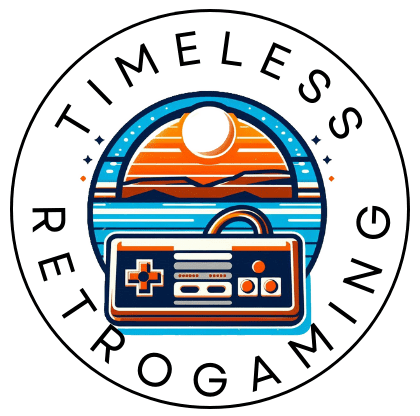
Online gaming kinda kicked off a whole new era – a digital playground that changed everything. Back in the day, folks were just getting used to the idea of interacting through screens. Imagine that! You’ve got ARPANET to thank, which laid down the foundation for how we connect today.
ARPANET was divided into two parts, MILNET, to be used by military and defense agencies, and a civilian version of ARPANET. The term “Internet” was adopted in 1983, at about the same time that TCP/IP came into wide use.
Before the flashy graphics and epic storylines we know now, there were these text-based adventures known as “MUDs” (Multi-User Dungeons). If you think typing commands doesn’t sound thrilling, think again. These games had players hooked, creating fantastical worlds with just words and collaboration. It’s wild how these early games laid the groundwork for today’s MMORPGs (Massively Multiplayer Online Role-Playing Games).
The 1970s and 80s were buzzing with innovation, as developers played around with ideas to make gaming more interactive. It wasn’t just about beating a high score anymore. It was about actually joining these huge, shared adventures with others. Players from all over could finally connect, strategize, and compete without ever leaving their homes.
Those early pioneers got the ball rolling for all the high-tech developments we see today. They showed us what was possible when gaming went online, inspiring countless developers to push the boundaries of what a ‘game’ could be. It wasn’t just a hobby anymore; it was the beginning of an entirely new digital frontier.
Thinking back to how simple the beginnings were, it’s clear how much of a game-changer (pun intended!) this moment truly was. It set the stage for everything that came after – connecting people across the globe through a shared love for gaming, and setting up a whole new kind of community before anyone even knew what social networking was.
Evolution of Multiplayer Online Games
When you think about how far online multiplayer games have come, it’s pretty mind-blowing. We’ve gone from simple text-based adventures to intricate virtual universes where you can practically lose track of time. This transformation didn’t just happen overnight; it was a journey driven by tech advancements and a growing passion for deeper, richer gaming experiences.
The shift from text to graphical interfaces was a game-changer. Suddenly, you could see the worlds you’d only read about, making everything way more immersive. The introduction of MMORPGs opened up even bigger worlds, packed with quests, characters, and that sweet sense of community. Games like EverQuest and World of Warcraft didn’t just happen; they exploded onto the scene, showing everyone what multiplayer gaming could truly be.
Behind every set of jaw-dropping graphics was technology hustling to keep up. Whether it was connecting folks quicker through better internet services or amping up the graphical fidelity, tech was the wind beneath the multiplayer wings. Developers seized every opportunity to take gaming to new heights, continuously raising the bar.
These landmark games weren’t just about playing; they reshaped the very definition of gaming. Multiplayer experiences began embracing player-driven narratives and persistent virtual worlds where everything kept ticking whether you were logged in or not. It wasn’t just about playing to win but playing to explore and connect under the canopy of shared adventures.
Looking back, it’s wild to see how these strides have brought us to today’s expansive online experiences. Those early groundbreaking games paved the way, creating a landscape where creativity meets competition on a global scale. Multiplayer online games aren’t just a form of entertainment; they’re a cornerstone of how we socialize, tell stories, and even learn in this connected age.
The Impact of Online Gaming Communities
Online gaming communities have become a massive part of what makes gaming so appealing. Beyond the game itself, it’s the camaraderie, the shared goals, and sometimes even the friendly rivalries that keep players coming back.
Back in the early days, these communities might’ve been small groups chatting on message boards, but boy have things changed. Players now connect via social media, in-game chat, and forums, creating networks that can span continents. It’s like one giant hangout space where everyone speaks a shared language: gaming!
Many of these communities have their own cultures, with unique norms, inside jokes, and a shared history that you can only get from spending countless hours in the game. These shared experiences make people feel like they’re part of something bigger than themselves. And that sense of belonging? It’s powerful stuff.
Then there’s the whole in-game economy thing. Virtual currencies and items have given rise to real-world economic interactions, making these online worlds feel just as impactful as the real ones. Whether it’s trading rare items or hosting in-game events, players are finding new ways to engage and even earn a few bucks.
Pop culture gets in on the act too. Games become cultural icons, influencing everything from memes to fashion trends. Think about it – those gaming references you see in movies or music? They’re a testament to how deeply woven into our culture gaming has become.
Take games like Fortnite or Minecraft, for instance. They’re not just games, but massive cultural phenomena. They’ve fostered communities where creativity and strategy thrive, reaching audiences far beyond typical gamers. Their communities are legendary, shaping and sometimes even leading social trends.
All these elements come together to make online gaming communities a vital part of the gaming world today. They foster connections and friendships while building a dynamic space where social, cultural, and economic exchanges occur, reflecting the vibrancy of our digital age.
Technological Advancements and Innovation
The tech behind online gaming has come leaps and bounds, right? Remember dial-up internet and how just getting online felt like winning a mini-battle? Nowadays, broadband makes gaming swift and smooth, letting players dive straight into the action without a hitch.
Mobile gaming changed the game, literally. The ability to game anywhere—on your phone sitting at a bus stop, in a café, or even lounging on the couch—has made gaming way more accessible. We’re carrying an entire arcade in our pockets, showing just how far tech has integrated with everyday life.
Virtual and augmented reality are pushing boundaries even further. These aren’t just buzzwords; they’re turning the gaming world on its head by offering immersive experiences that make you feel like you’re part of the game world. Imagine not just seeing a game through a screen but being right inside it. That’s the magic VR and AR bring to the table.
Future tech trends promise even more mind-blowing advancements. We’re talking AI-driven game design, cloud gaming services that let you play any game without hefty downloads, and a rise in indie developers who are using accessible tech to make games that break the mould. The future’s looking bright and packed with potential.
This tech evolution isn’t just about faster, prettier games. It’s about telling richer stories and creating more meaningful interactions. Every technical leap forward opens up new avenues for creativity, redefining what gaming can be and how we experience it. It turns out that the real frontier of gaming is ever-expanding, driven by innovation and a desire to bring more people into its fold.
The Cultural and Economic Influence of Online Gaming
Online gaming has stepped out of the screen and into our lives in ways we couldn’t have predicted. It’s become a cultural powerhouse, influencing everything from movie plots to music, and even making its way into classrooms as a legitimate tool for education and collaboration.
The gaming industry isn’t just a juggernaut in cultural terms; it’s an economic giant as well. Billions of dollars are pumped into games annually, driving technological advancement and providing millions of jobs worldwide. It’s staggering to see how big a slice of the entertainment industry pie gaming has gobbled up.
Esports has turned gaming competitions into spectator sports, drawing audiences that rival traditional sports events. Gaming championships offer prize pools in the millions and attract major brand sponsors, highlighting how serious and mainstream the scene has become.
Gaming goes beyond just economics and entertainment; it’s a social phenomenon too. It champions inclusivity and diversity, breaking barriers for players from various backgrounds and fostering a sense of unity among its diverse communities. Characters and stories reflect a wider range of experiences, making gaming more relatable and inclusive.
Whether we’re looking at the impact on culture or the massive economic contributions, online gaming stands as a testament to how far we’ve come and hints at just how much further we can go. Gaming isn’t just a pastime anymore; it’s a vital part of our world, shaping minds, economies, and societies in unexpected and fascinating ways.

